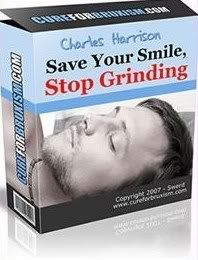Grinding teeth is something that is caused by any number of things. Most doctors and dentists attribute it to stress and anxiety. It can also be caused by abnormal biting, crooked teeth, and sleep disorders. As you can see, if you are a sufferer of
bruxism, it may not be easy to determine exactly why.
Teeth grinding can be mild or it can be violent so that the teeth become damaged. Most people who have it suffer from a mild case of grinding teeth at night while they sleep. Over time however, this nightly damage can add up to some serious degradation of the teeth. If you know you grind your teeth at night, it is best to find a solution now rather than waiting until more damage is done.
In some cases, the biting at night can be much stronger than what you might do when you are awake during the day. People have been known to exert up to six times more pressure at night than they do when they are awake. This leads to jaw aches, head aches, chipped teeth, and worn down teeth.
Is there a cure to
grinding teeth? Most dentists will want to fit you with a mouth guard to use while you sleep. These are custom made and thus quite expensive, usually cosing over $500.00. If you get one of these mouth guards, you may be protecting your teeth but you are not finding a cure. You may still wake up with the sore jaws and the head aches. The mouth guard doesn't stop the problem of
teeth grinding, it just minimizes the damage.
Working on your stress levels and finding a way to reduce tension may be a better plan of attack to
stop grinding teeth. If you can reduce your
stress you will also reduce your unconscious desire to clench and grind your teeth. You can also work on reducing your stress right before you go to bed by doing jaw
excesses. There is a way for everyone to cure their own case of grinding teeth. You just have to find it.
